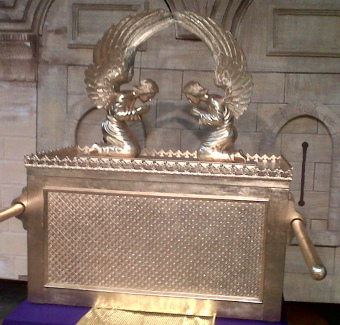When it comes to God's commanded periods of rest, whether it be for humans or the land, we find the number seven showing up again and again!
The Bible Sabbath
It was God, not man, who created a seven-day week. God's weekly Sabbath day, which has NOT changed since he created it (Genesis 2:2 - 3), is the seventh day of every week (sunset Friday to sunset Saturday). It is a day dedicated to resting and worshipping our Creator.
God's Appointed Times
There are seven annual Feast (Holy) day periods. They are Passover, Feast of Unleavened Bread, Pentecost, Feast of Trumpets, Day of Atonement, the Feast of Tabernacles and the Last Great Day.
There are seven high Holy (Feast) Days throughout the year. They are the first and seventh days of Unleavened Bread, Pentecost, Trumpets (Rosh Hashanah), the Day of Atonement (Yom Kippur), the first day of the Feast of Tabernacles and the Last Great Day. God commands that on high days his people should perform no servile work but instead gather to worship him (see Leviticus 23).
The two Feast periods which run for seven days are the Feast of Unleavened Bread in the spring and the Feast of Tabernacles in the fall.
The pattern of God's Feast Days, based on the number of days of each worship period, is 1 - 7 - 1 - 1 - 1 - 7 - 1. This sequence is the same forward and backward, a unique and rare arrangement called a numeric palindrome!
God's Feast Days occur each year during a seven month period (Nisan to Tishri).
The seventh month of the Biblical sacred (religious) year is Tishri. The month of Tishri has the most high feast days (four), and the most total feast days (10), of any other month. Tishri also completes the observance of God's Feasts for the year.
Pentecost
Pentecost is determine each year by first counting seven sets of seven complete weeks (hence the name "Feast of Weeks" - see Exodus 34:22). This set of seven also includes seven weekly Sabbath days. The seven weeks leading up to Pentecost were ancient Israel's spring harvest time (Exodus 23:16, 34:22).
"And you shall count to you beginning with the next day after the Sabbath, beginning with the day that you brought the sheaf of the wave offering; seven Sabbaths shall be complete. Even unto the day after the seventh Sabbath you shall number fifty days . . ." (Leviticus 23:15 - 16, HBFV).
God required that on Pentecost, the Feast of Trumpets, the Day of Atonement and the Last Great Day, seven unblemished lambs of the first year be sacrificed to him (Leviticus 23:18, Numbers 29:1 - 2, 8, 36).
A Blowing of Trumpets
The phrase "a day of blowing of trumpets" in Numbers 29:1 (KJV), used for the Day of Trumpets, is composed of seven Hebrew letters. This high Holy Day always occurs on the first day of the calendar's seventh sacred month (Tishri).
Atonement
On Atonement the High Priest took the blood of a bullock and sprinkled it upon the Ark of the Covenant's mercy seat seven times. When he finished this task he sprinkled the blood of a goat upon the Ark seven times (Leviticus 16:14 - 15).

The Greatest Feast
Seven bullocks were sacrificed to God on the seventh (last) day of the Feast of Tabernacles (Numbers 29:32).
Israelites were required, during all seven days of the Feast of Tabernacles, to dwell in temporary residences known as booths (Leviticus 23:42).
The Sabbatical Year
The Sabbatical year, like the weekly Sabbath, was created as a holy period designed to bring rest, renewal and rejuvenation to both the people and the land. God commanded that the land go uncultivated and "rest" during this special year. Israelite creditors, who were owed money from fellow Israelites, were also to forgive such debts.
"When you come into the land which I give you, then shall the land keep a Sabbath to the Lord. You shall sow your field six years, and you shall prune your vineyard six years, and gather in the fruit of it.
"But in the seventh year shall be a Sabbath of rest to the land, a Sabbath for the Lord. You shall neither sow your field, nor prune your vineyard." (Leviticus 25:2 - 4, HBFV).
"Every man who has a loan to his neighbor shall release it. He shall not exact it from his neighbor or from his brother because it is called the Lord's release." (Deuteronomy 15:2).
The seventh year of every seven year cycle is considered a Sabbatical year (Exodus 23:10 - 11, Leviticus 25:1 - 7, 19 - 23). The Sabbatical year is also called "the Sabbath of the Land" (or land Sabbath, Leviticus 25:4) as well as the "year of release" (Deuteronomy 31:10).
The Year of Jubilee!
The year of the Jubilee, like that of the Sabbatical, was a time when the land was to lay uncultivated. Israelite slaves were to be freed and all land returned to its original owners.
"And you shall make the fiftieth year holy, and proclaim liberty throughout the land to all its inhabitants. It shall be a jubilee to you, and you shall return each man to his possession, and you shall return each man to his family.
"That fiftieth year shall be a jubilee to you. You shall not sow, neither reap that which grows of itself in it, nor gather the grapes of your undressed vine in it . . ." (Leviticus 25:10 - 11).
The Jubilee year is declared after seven sets of seven years have completed (Leviticus 25). This period of 49 years has seven Sabbatical years within it. The year after these 49 is proclaimed a Jubilee (see Luke 4:18 - 19, 21)!